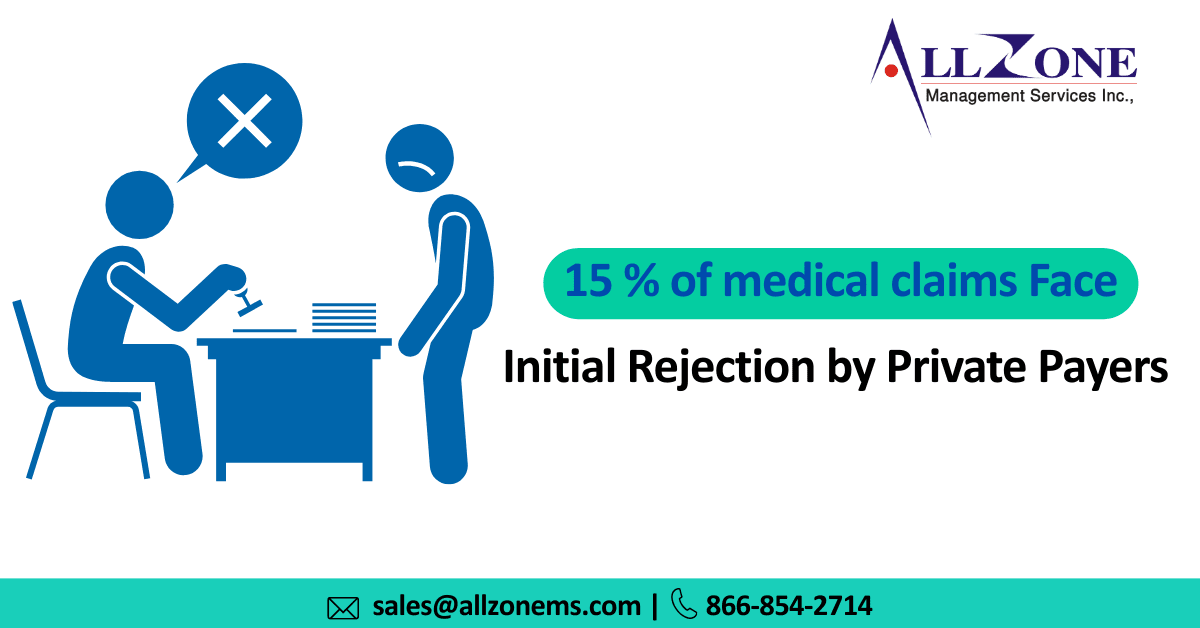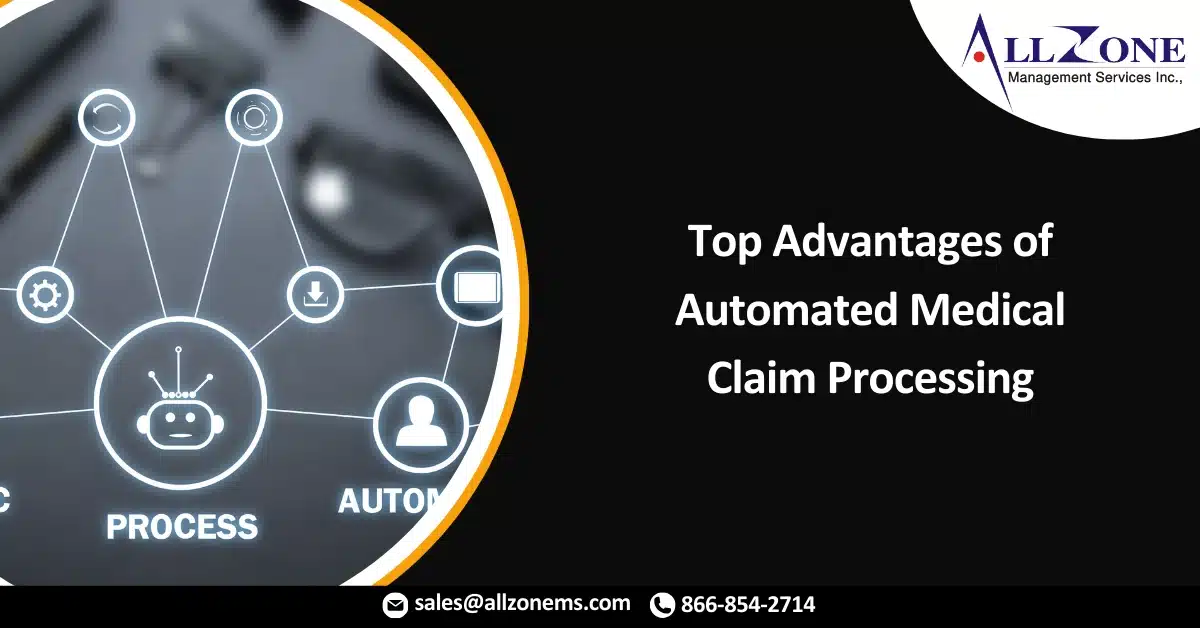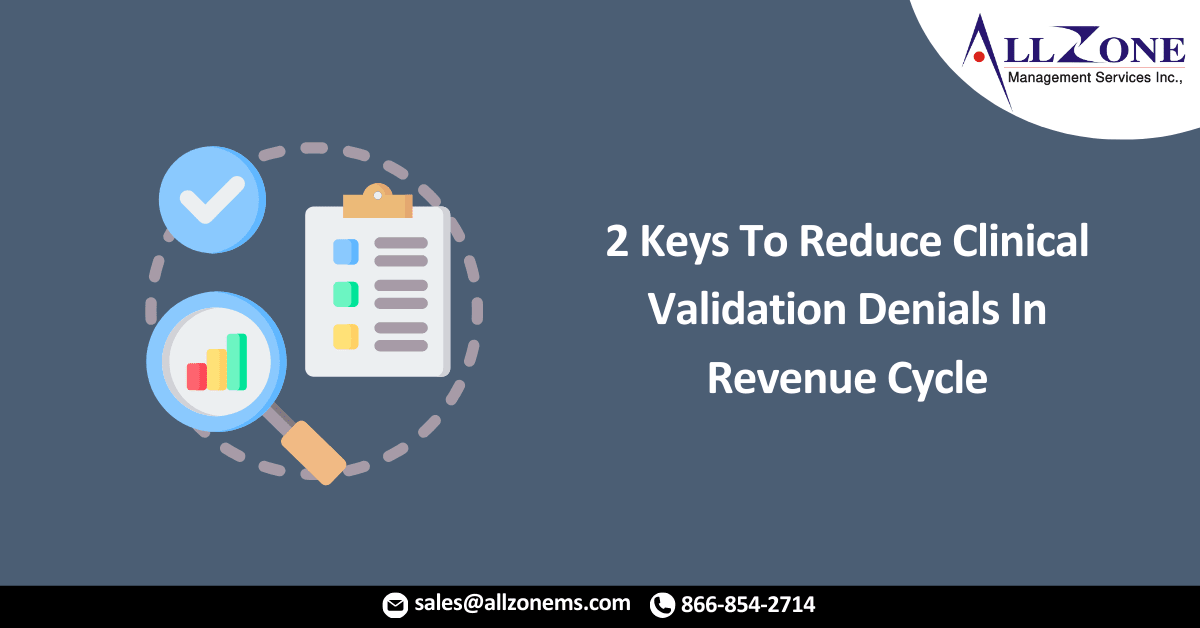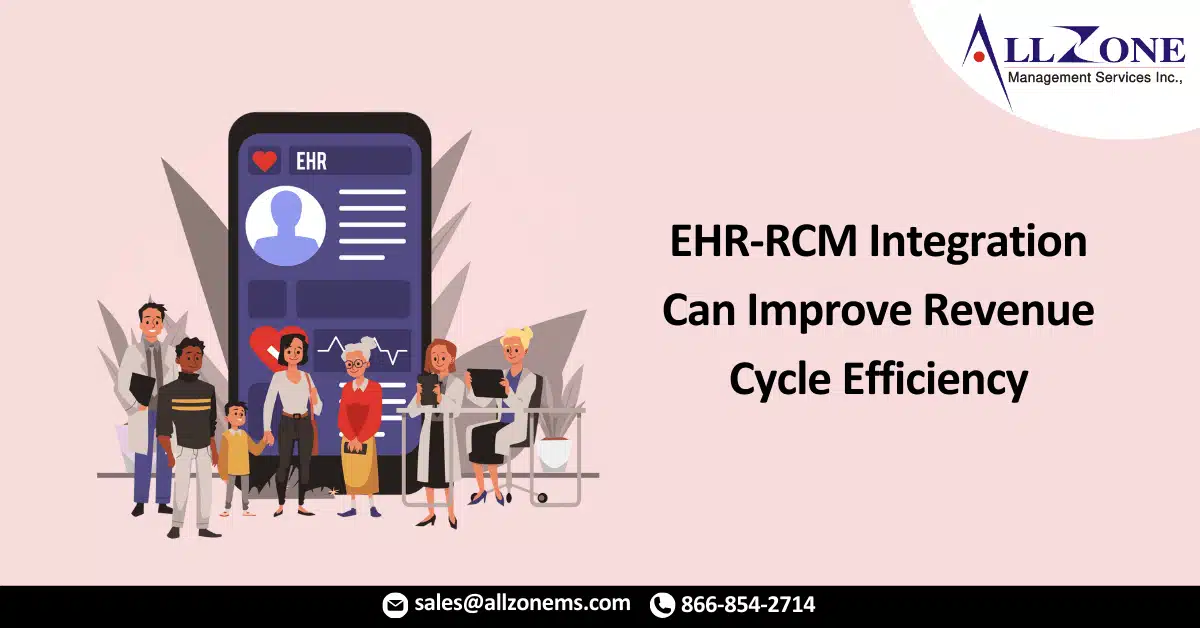The U.S. healthcare ecosystem continues to evolve with each passing quarter. As we navigate through rising operational costs, reimbursement challenges, and digital disruption, healthcare organizations—hospitals, physician groups, and medical billing companies alike—are seeking smarter, more resilient ways to operate and enhance their financial performance. At Allzone Management Services, we’ve had the privilege of partnering with […]
In today’s complex healthcare environment, efficiency and cost control are critical for the financial health of providers, payers, and revenue cycle management (RCM) companies. One area that continues to experience inefficiencies is the claims management process—where errors, delays, and administrative overhead inflate operational costs. However, the rise of automation technologies is changing the game. Automating […]
In the complex world of insurance and healthcare claims, the concept of “zero-paid claims” can feel like a phantom menace. You’ve submitted a claim, received an Explanation of Benefits (EOB) or remittance advice, and to your dismay, the payment is… zero. While a zero payment might seem innocuous, it can, in certain scenarios, be interpreted […]
A well-managed A/R process ensures timely cash flow, reduces administrative burdens, and maintains the stability of a healthcare practice. However, many healthcare practices still struggle with outdated, manual A/R management processes that can lead to inefficiencies, errors, and delayed payments. In recent years, Revenue Cycle Management (RCM) automation has emerged as a game-changer in addressing […]
The Rising Denial Rates in Healthcare Claims Processing Initial Claim Denials: In a new survey conducted by healthcare Company an increased percentage of initial claims are denied by private payers, including pre-approvals for medical claims. Hospitals, health systems, and post-acute care providers may have a difficult time getting paid for medical services. The survey respondents […]
A recent examination has revealed a significant link between the operational location of healthcare providers and the speed and accuracy of claims reimbursement by insurers. If your practice encounters delays in claims reimbursement, this may be attributed to the geographical area in which your practice is situated, according to a recent scrutiny of financial transactions. […]
With the arise of indirect health practices such as telehealth, it is becoming increasingly indispensable to play with bill payments and claims orderly. The medical billing cycle is a complex system encompassing procedures such as medical recordkeeping and patient data processing. Medical claim processing is the keystone for healthcare insurance companies since it needs data […]
KEY TAKEAWAYS Denials rose to 11% of all claims last year, up nearly 8% from 2021. Revenue cycle leaders should place their focus on clinical validation denials to help ease the overall denials burden. A key defensive strategy for preventing denials is provider education. Revenue cycle leaders need to understand that clinical validation denials are […]
Partnering with a vendor that provides EHR and RCM capabilities helped one healthcare organization boost communication and improve revenue cycle efficiency for 150 care centers. Leveraging automation for revenue cycle management (RCM) processes can streamline tasks and improve efficiencies. Specifically, partnering with an EHR vendor helped a healthcare organization to achieve $1 billion in patient […]
In 30 years of running revenue management the usual suspects come up in a Key Performance Indicator (KPI) Dashboard such as Charges, Payments, Adjustments, Net Collection, Gross Collection, Days in AR, AR over 90 Days and Bad Debt. Then you have the breakouts for each category by payer, CPT Code, Location, or ICD Code. There […]










